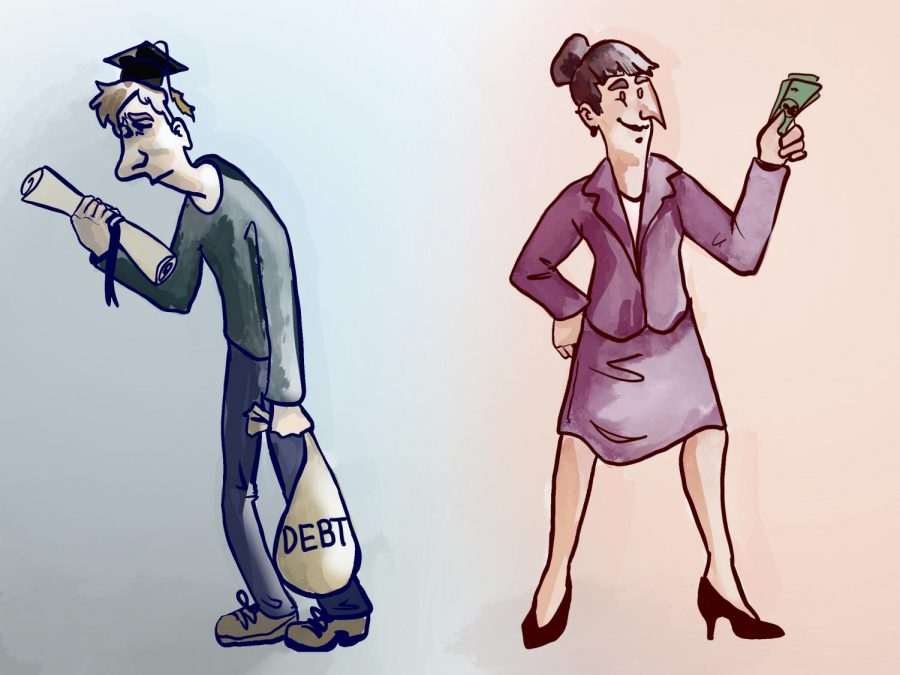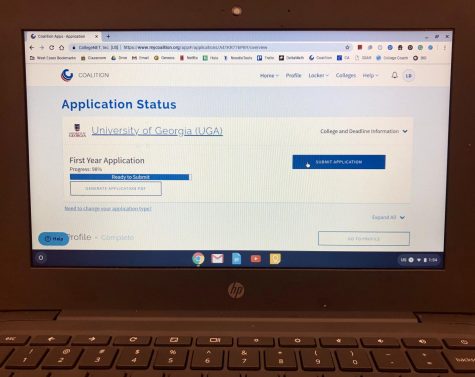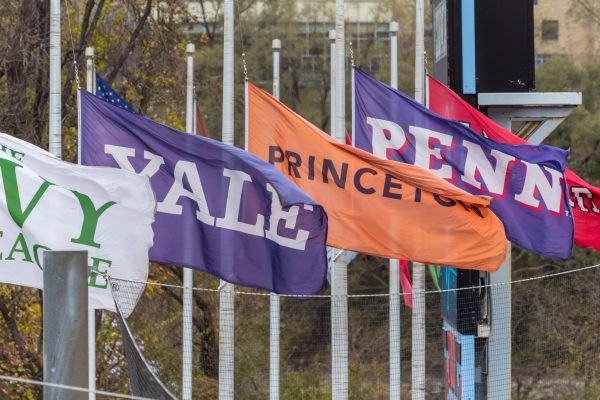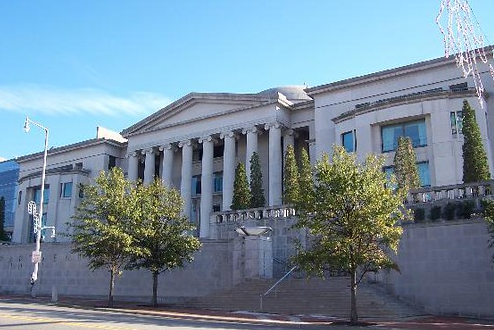OPINION: High schoolers don’t have to go to college
Illustration by Ava Buccino
Students attend college thinking they’re going to get a flashy degree, but instead wind up with a bag full of debt.
The case pushed by parents, educators and counselors is that high schoolers have to go to college. As a result, students go after higher education, but due to the increasing costs of schooling, many students have to take out loans and expect to pay off those debts during their lifetimes. According to Forbes, as of 2019, almost 45 million U.S. borrowers have accumulated almost $1.6 trillion in student loan debt; that is a huge problem.
The idea of college should be a personal investment into a student’s own future. In reality, it is an academic machine that takes four years out of students’ lives, as well as six figures out of their families’ bank accounts. While college seems like a rite of passage from parents’ rules or an expectation from society as described by PragerU, neither of those things have anything to do with getting a good education and for preparation for the future.
Let’s face it: College isn’t always the best option for some students. There are many trades and blue-collar jobs that don’t require four-year colleges, will always be in-demand and will not leave students in debt. Plumbing, welding and jobs in sales and entrepreneurship are some examples of fine careers that do not require a degree. In fact, there are over 30 million of these that pay $55,000 annually, according to a Georgetown University study.
On the other hand, I understand that certain jobs require college degrees, but students need to set an achievable plan that includes a good degree, and then the ability to get a job that will eventually pay back any student loan debt. Doctors, lawyers and multiple white-collar office jobs obviously require college degrees, but those types of fields are only for those who are prepared for the work that those jobs require.
Another aspect of the college that should create a discussion about its degree is the fact that “free tuition” is a proposal thrown everywhere. Outside of how much this would cost the government, free college for all or even most would cheapen the value of a college degree. A college degree is the most prized academic degree because it’s one that required hard work, but also has a cost (tuition). If college is “free,” then that degree will be worth just as much as a high school diploma, which certainly is not the intention when students attend colleges and universities.
Besides “free tuition,” there are other current proposals which are a slap in the face to parents who made tough financial decisions for their children and to young adults who chose not to go to college. Presidential candidate Sen. Elizabeth Warren (D-Mass.) unveiled a student loan “forgiveness” plan. However, this plan does not give forgiveness to millions of students who have paid off their tuition in some way, or the students who opted to not go to college. This unfair proposal will also set the dangerous precedent that the government can offer young adults a loan to “invest” in their futures, only to have their tuition costs simply handed back to them.
After four years of high school, it’s understandable that some students want to explore a new world in the sense of college. But the fact is that when you look into the finances and futures of students, the expected return on their investment into their education is falling way too short.












